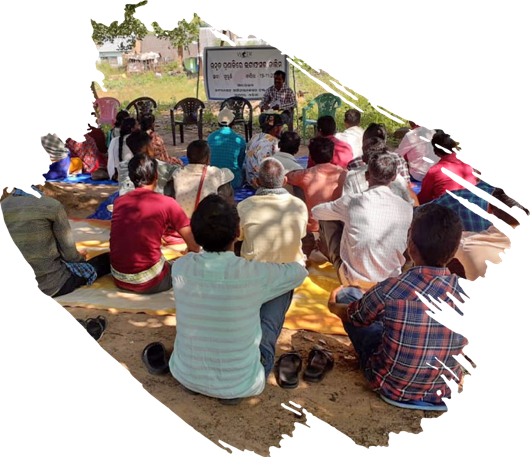Chhattisgarh
The Challenge
Largely rural and tribal, the state of Chhattisgarh is dependent on agriculture and forest resources to a large extent. Most families in this region fall in the low-income category and face the repercussions of land degradation. Parts of Chhattisgarh are in hilly terrains where soil erosion is a common problem. This is not only depleting the forest resources but also making agricultural land unfit for cultivation. The project areas in Chhattisgarh are in remote locations, impacting villages’ connectivity to the outside world.
WOTR’s Approach
WOTR has recently started working in Chhattisgarh with a focus on mitigating poverty by expanding livelihood options for the communities. With integrated natural resource management and sustainable agriculture, our aim is to strengthen the socio-economic status of the rural and tribal population. The focus is on building the capacities of marginal farmers and improving their resilience.
Presence
WOTR is currently working in 44 villages across Korea and Surajpur districts in the state.
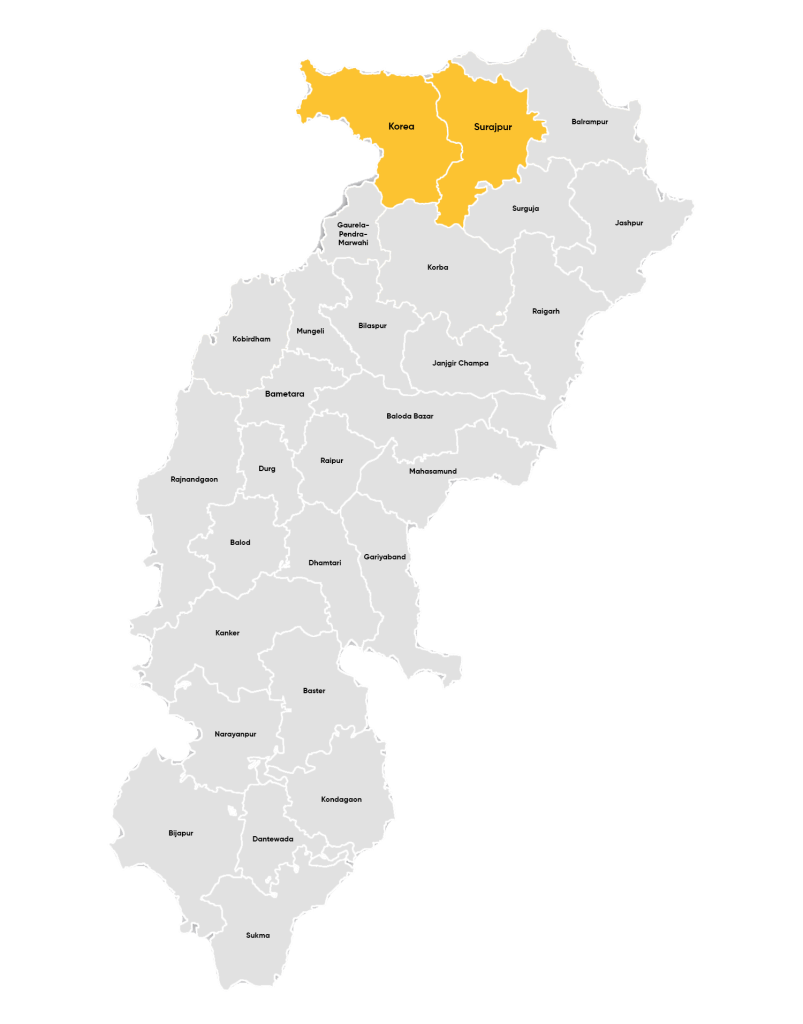
Flagship Programmes
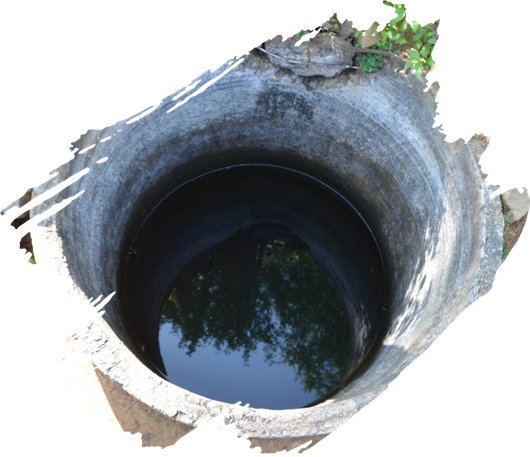
Water and Land Management
To support sustainable agriculture and appropriate cropping patterns, WOTR has initiated integrated watershed management in the region. The project will promote efficient use of water in agriculture as well as for domestic purposes.
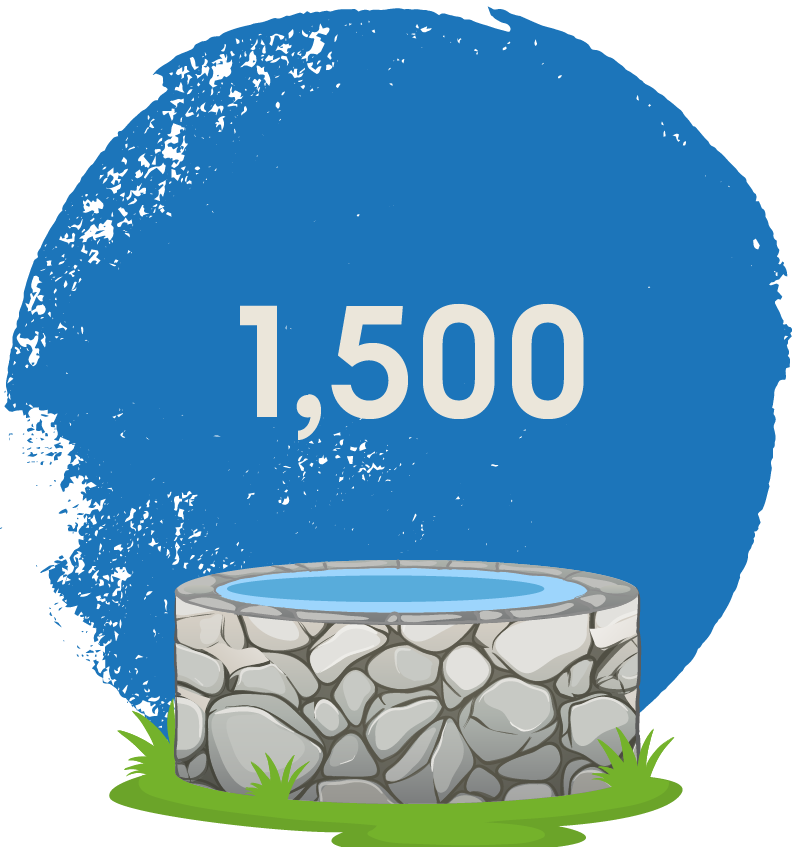
households benefitted from watershed structures in Korea district
million litres of additional water storage capacity generated
farmers supported through water and land treatment
Climate Resilient Agriculture
Farmers in Chhattisgarh traditionally cultivate crops only during the Kharif season. WOTR is now educating the community and training them to adopt modern, climate-resilient agricultural practices to diversify the cropping patterns and increase cropping intensity in a sustainable manner. Our focus is on the promotion of sustainable land and ecosystem management practices, which include organic farming and appropriate crop choices, integrated pest and disease management and improving water-use efficiency.
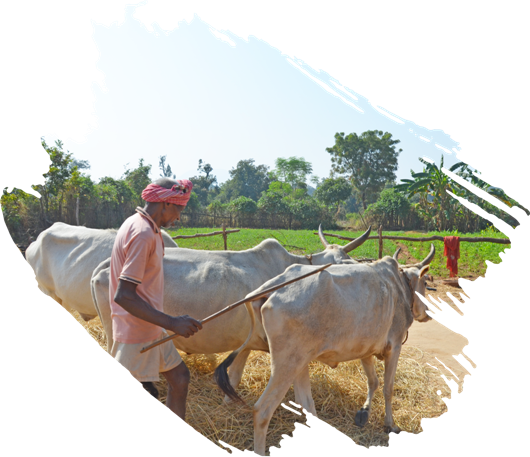
farmers have adopted climate-resilient agriculture
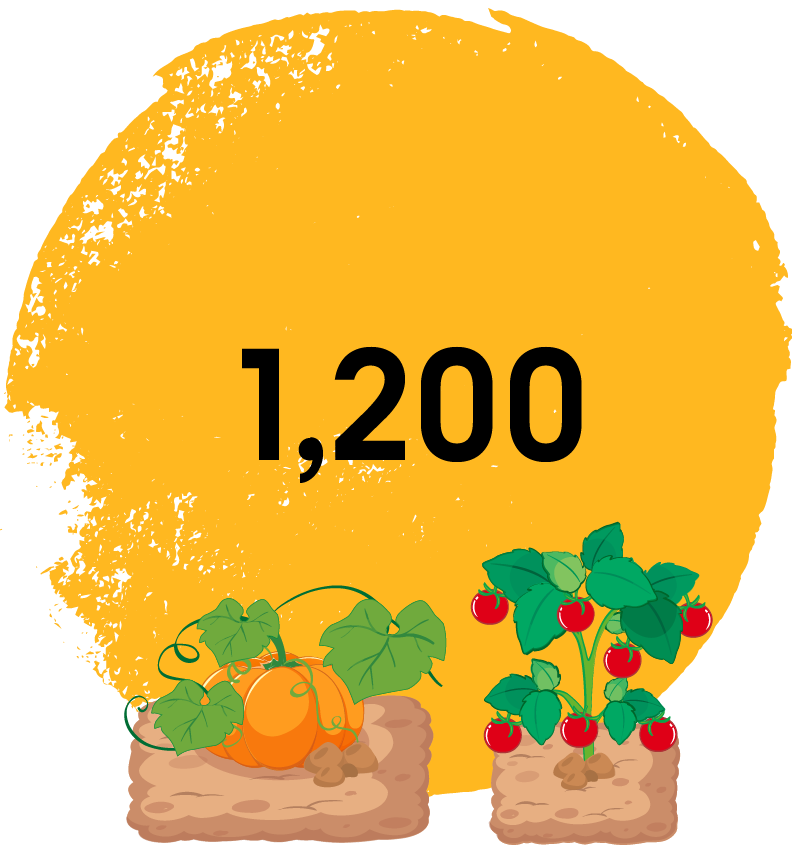
community members will be supported to start vegetable farming and kitchen gardens
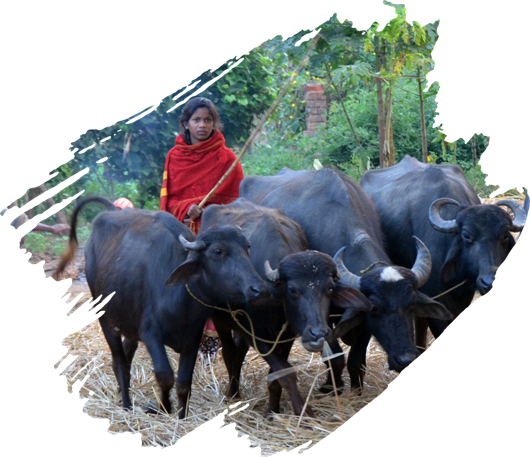
Livelihoods
Agriculture and forest-based activities are the primary sources of income in Chhattisgarh, while livestock management and production are a few of the secondary sources. WOTR is promoting other livelihood opportunities to supplement and diversify income sources, to focus on the landless and other vulnerable sections of the community, and to reduce vulnerability to climate change and extreme weather events.
WOTR’s team in Chhattisgarh has participated in Gram Sabhas to raise awareness on different interventions. Well-being ranking, net planning, PRA and formation of Village Development Committees (VDCs), Self-Help Groups (SHGs) and Sanyukt Mahila Samhiti (SMS) have been initiated at the beginning of every project. WOTR is raising awareness on various government support schemes and helping eligible families with the necessary paperwork to avail the benefits.
